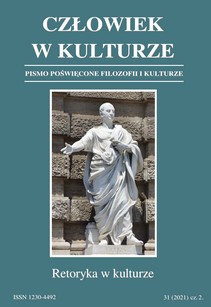Rosmini i Arystoteles – interpretacja prawa ludzkiego w świetle odmiennych definicji człowieka
Rosmini and Aristotle - Interpretation of Human Law in the Light of Differing Definitions of Man
Author(s): Krzysztof WroczyńskiSubject(s): Ancient Philosphy, 19th Century Philosophy, Philosophy of Law
Published by: Fundacja »Lubelska Szkoła Filozofii Chrześcijańskiej«
Keywords: philosophical anthropology; philosophy of law; human law; legal personalism;
Summary/Abstract: The aim of the article is to show the dependence of the concept of law on the presented concept of human being. In the first point (Human Law), the problem is posed in what sense human law (lex humana) can be understood as a real law, and thus satisfy the basic conditions of being law. Rosmini then proceeded to criticize Aristotle’s (and Plato’s) position by arguing that the necessary conditions for being a law are to include in the understanding and definition of man, in addition to his reasonableness, free will and corporeality (a fundamental sense). When this is not taken into account in making law, it becomes abstract and detached from human good. Thus, the third point presents the defining elements of man as necessary to be taken into account in order to explain the fact of law and its validity. The fourth point is already devoted only to the definitional elements of law in Rosmini’s view. These are necessary in order for law to be really law and not, for example, some form of purely arbitrary command or even non-rational action. The definitional elements thus outlined indicate (emphasized in the conclusion) the main features of Rosmini’s understanding of law. They may, of course, be controversial against the background of contemporary philosophicallegal approaches.
Journal: Człowiek w Kulturze
- Issue Year: 2021
- Issue No: 31/2
- Page Range: 157-163
- Page Count: 7
- Language: Polish

